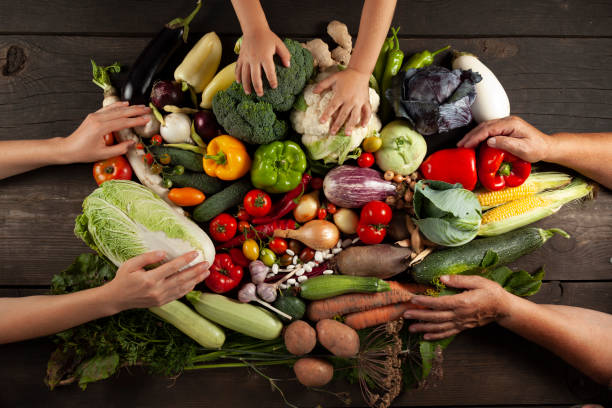Decoding the Language of Food: A Sociocultural Perspective
Food, beyond being a source of sustenance, is a medium of communication. It reflects societal values, norms, and identities. This article delves into the sociocultural significance of food, tracing its historical context, examining current trends and future implications.

A Bite into the Past
From the first act of cooking to the establishment of gastronomic traditions, food has played a pivotal role in shaping societies. The development of agriculture marked the beginnings of civilization, while food preservation techniques enabled long-distance exploration and trade. Regional cuisines emerged as the amalgamation of local produce, cultural influences, and historical events, thus becoming a narrative of society’s evolution.
The Globalization of Palates
With the advent of globalization, the food landscape has witnessed unprecedented transformations. The rise of fusion cuisine is a testament to the blurring of cultural boundaries, as chefs creatively interweave elements from diverse culinary traditions. Simultaneously, the farm-to-table movement signals a shift towards sustainable eating habits, reflecting increased social consciousness about environmental impacts.
Food and Identity: A Complex Recipe
Food is a powerful marker of identity, often symbolizing one’s ethnicity, class, or gender. For immigrants, maintaining traditional food practices can be a means to preserve their cultural heritage in a foreign land. Conversely, the adoption of foreign cuisines may signify social mobility or cosmopolitanism. The vegan movement, largely driven by ethical and health considerations, exemplifies how food choices can also articulate personal beliefs and values.
The Sociocultural Implications of Food Trends
The current food trends, like the proliferation of diet cultures and the popularity of food photography on social media, reveal much about contemporary society. The obsession with dieting reflects an increasing emphasis on body image and health. Meanwhile, the trend of sharing food pictures online is a manifestation of the digital age’s exhibitionist culture, contributing to the commodification of food.
Tasting the Future: Food and Society
As we look to the future, emerging food technologies like lab-grown meat and 3D printed food promise to revolutionize our eating habits. These developments raise critical questions about the future of food ethics, sustainability, and cultural practices. As society evolves, so too will our relationship with food, continuing the age-old dialogue between what we eat and who we are.
In conclusion, food is a mirror reflecting societal changes, a language articulating cultural identities, and a catalyst driving social transformation. As we explore new culinary frontiers, we also uncover insights about ourselves and the society we inhabit.




